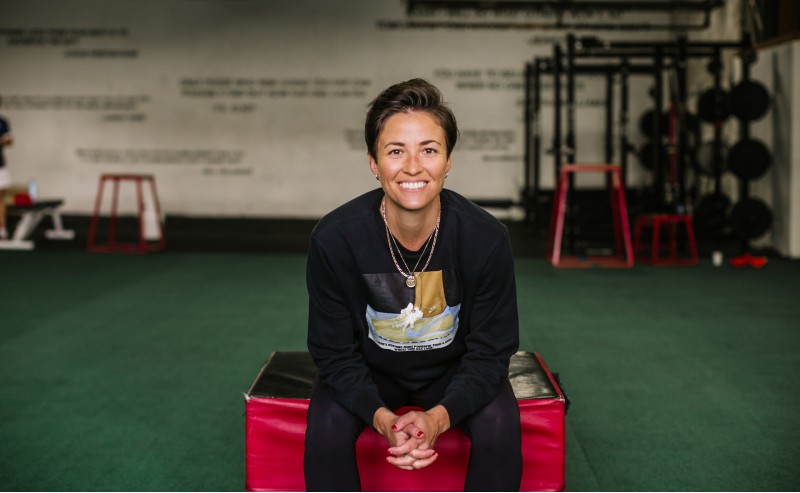The Rapinoe sisters have become synonymous with soccer.
While Megan Rapinoe has played on the international stage, Rachael Rapinoe has played on every side of the ball as both a professional player and trainer, and has expanded her efforts off of the field as an entrepreneur.
After winning an NCAA national championship with the University of Portland in 2005 and subsequently playing professional soccer in Europe, Rapinoe eventually retired to pursue a career in the health and fitness industry.
She went on to build Rapinoe SC, a top soccer performance training company and lifestyle apparel brand with her sister Megan.
However, in the last several years, Rachael’s interest in how cannabis can help in athletic recovery and performance has grown tremendously, leading her to build Mendi, a CBD brand with athletes in mind.
In this exclusive interview, we discuss with Rachael Rapinoe how Mendi got started, why science is so vital to their products, and how the company is focusing on the needs of athletes.
Cannabis & Tech Today: How did your relationship with CBD begin? Is this something you’ve been interested in throughout your sports career or has this been a new discovery for you?
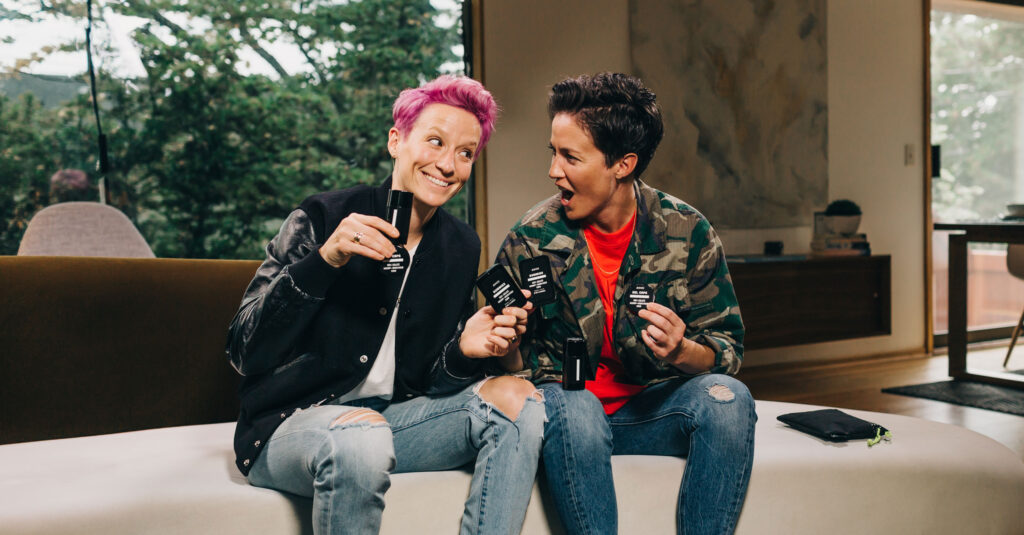
Rachael Rapinoe: It’s been a newer discovery in my adulthood, but I’m a science geek.
For undergrad, I got my biology degree, and I got my Masters of Science in health and exercise.
So I’ve definitely always been interested in health and wellness and exercise, and particularly the role that recovery plays in performance, both with elite and everyday athletes.
So I’ve been on that journey for probably 15 years…
My sister plays at the highest level and I’ve just been watching her and her teammates and our friends compete and watching the journey and the science over the last decade about recovery and about the things that athletes put in their bodies.
Then, I would say about five or six years ago, I started using cannabis myself and I was introduced to it by other athletes that I trusted.
Just going through the self-discovery process with the plant, it was quite eye opening and obviously it made me reflect a lot on all the meds that I took and the ways that I tried to manage pain during my playing days.
If only I had known about hemp and the power of CBD, but also just cannabis in general and all the other cannabinoids, I think that it would have dramatically changed the course of my career.
So it was that kind of self discovery process, and then my entrepreneurial brain looked at the market and saw that there was a real opportunity to be the trusted sports CBD brand in this space.
Then Mendi was started.
C&T Today: You mentioned you got your Masters of Science in Health and Exercise. Were you able to use your science background as you were forming Mendi?
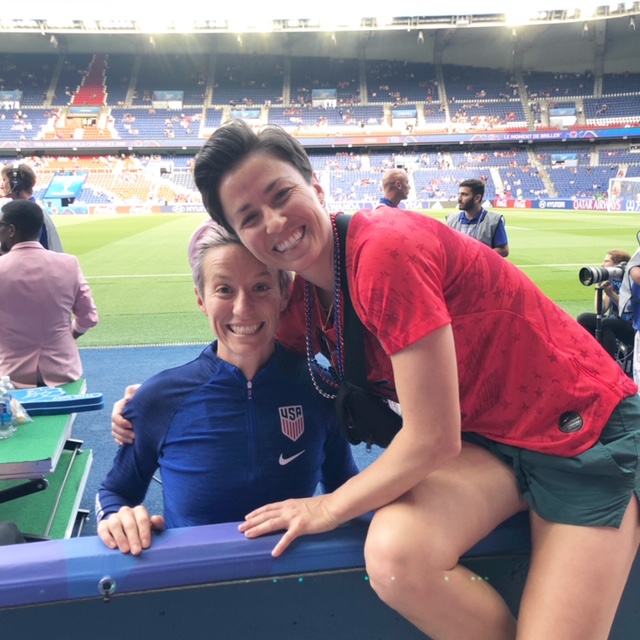
Rachael Rapinoe: Oh, absolutely. All of our products are backed by science.
All of our formulations are proprietary blends and we use not only cannabis, but other whole plant elements to formulate the products from the ground up to specifically meet the needs of athletes.
That absolutely plays a role because I know what types of supplements or minerals or vitamins athletes need to take as a recovery tool.
But then, as an everyday tool, I’m a huge believer in supplements, and I’ve done a lot of research, and I’ve taken them for years.
I’ve been a big advocate for athletes to be using supplements.
And so cannabis, at least the hemp plant, is another supplement that you can take every day to feed your endocannabinoid system and help you stay more balanced. I geeked out pretty hard on the science behind it.
I also think that because I built a training business here in Portland and a national training event brand, I had relationships with athletes.
I had credibility to my name, so that also played a role because people looked up to me as a performance coach.
C&T Today: It really is important to have that science to back you up.
Rachael Rapinoe: It really is. I mean, it has to be because otherwise, you know, athletes and medical teams and performance coaches wouldn’t take it seriously, you know what I mean?
Athletes are very disciplined with what they put in their body and they want to know that these companies have done work to make sure that this product is legit.
Going into this space, it was quite easy to convince athletes to trust us because I already had the relationships built.
C&T Today: Tell me about your journey as an entrepreneur, from athlete to business woman. How did Mendi come together?
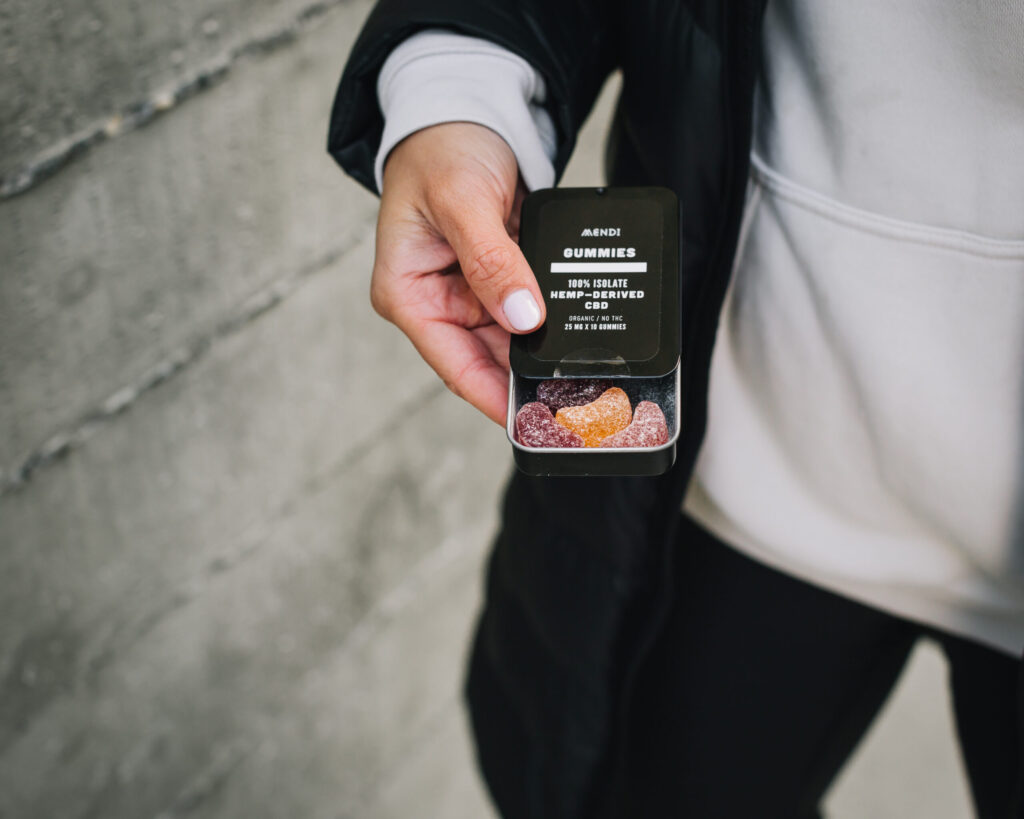
Rachael Rapinoe: Well, I have always been an entrepreneur. Even from a young age, I was always finding ways to generate revenue streams.
I’ve always been a worker … I knew from a young age that if you want to make money, you had to work.
So I’ve always grown up with that opportunistic mindset.
I have a company that I ran here in Portland and a national event business and it was called the Rapinoe FC and it was a soccer performance training company.
Then we had a lifestyle apparel line. So I had two branches and I ran that for six years.
In year four, I met Kendra Freeman, my co-founder, and she has been working in the cannabis space for 15 years as a farmer.
She owned a farm in Southern Oregon. It’s an organic THC farm, Oso Verde.
She came up here, I met her through a soccer friend, and we got to chatting and she was asking about my business and I was telling her about the brand that I was building, which was basically just championing being your best self.
I ran my own fulfillment center and warehouse and all that. We had international distribution.
She brought up hemp CBD and she told me that it was going to be the future, especially for athletes and that we should make an athlete recovery line.
At that point, the hemp farm bill hadn’t passed, so I wasn’t really interested in getting into an industry that wasn’t legal.
But that’s what really spawned my interest in cannabis and my self discovery process with the plant.
Long story short, after about a year and a half of using the plant, I realized, “Holy crap, this stuff works and athletes are using it, but there’s no trusted brand and there’s no education or there’s miseducation.”
So I came back to Kendra. I was like, “Okay, you’re right. There’s a real opportunity here.”
I had already done some market research and focus groups with athletes and I was also just asking around if this was something that a lot of them would be interested in and they were, so we decided that we were going to give it a go.
We brought in Brett Schwager, who’s our creative director.
We officially formed the company in January of 2019.
We were immediately accepted into a business accelerator program here in Portland.
We did that for four and a half months.
And, we launched June of 2019 and opened our first round of fundraising and closed it nine months later.
And here we are.
C&T Today: Since you just started in 2019, you’ve probably had a tough year having to deal with COVID so early on in Mendi’s founding. Has COVID-19 changed how you look at your business at all?
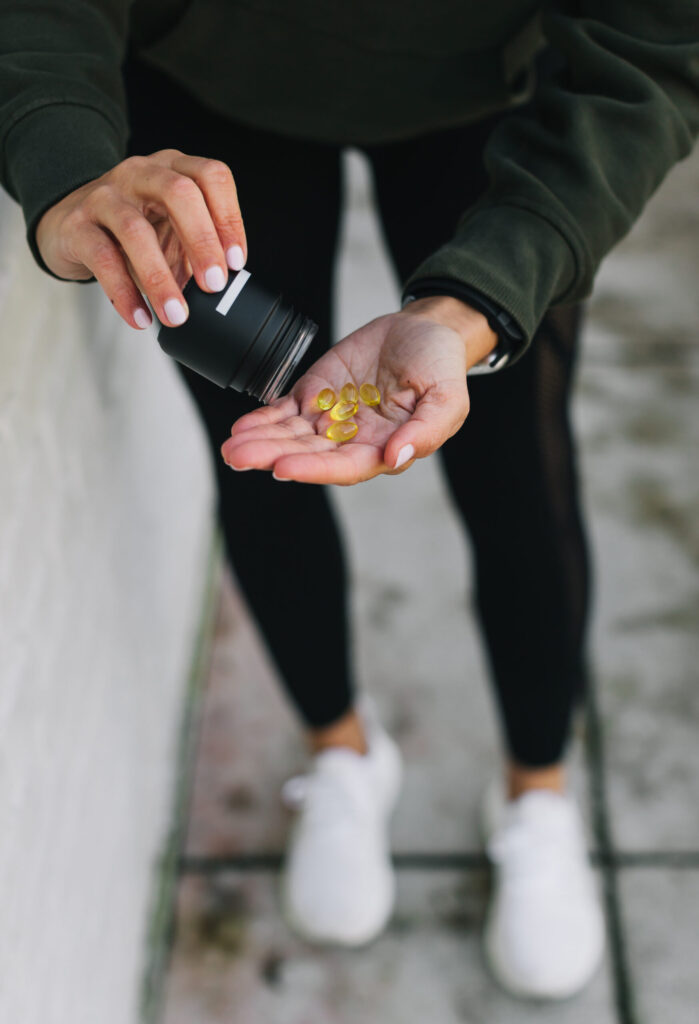
Rachael Rapinoe: We definitely had to pivot. We had to scrap a lot of plans that we had for the Olympics.
We also had a league-wide sponsorship with the [Premier Lacrosse League] and we had a couple team sponsors in the National Women’s Soccer League.
For us though, we were always hedging our bets on building a strong ecommerce business and online footprint and being very brand and marketing forward because we felt like that’s what’s missing in the space.
In that regard, we were still gonna stay the course.
You know, we had to push out our wholesale rollout. We launched a new athlete video series called “Sideline Huddle.”
So we did have to pivot a little bit, but ultimately we always wanted to lay a strong brand foundation and ecommerce foundation, and that really hasn’t changed.
C&T Today: With so many CBD and cannabis brands in circulation, what is Mendi’s strategy for standing out? From that marketing perspective, how are you targeting athletes specifically?
Rachael Rapinoe: Our strategy from day one has been twofold.
One, lead with a very clear and consistent brand voice.
And number two is use high profile athletes to convey the message because, as you know, the FDA doesn’t have any rules and regulations, so you have to be very careful with what you say about your products and how you educate consumers.
We wanted to bypass those hoops by using athletes.
As soon as we came to market, we came to market with Megan [Rapinoe] and Sue [Bird].
We immediately signed two NWSL teams coming off the women’s world cup.
We used athletes and we will continue to use athletes. We are an athlete-focused brand and it’s our mission to improve athletes’ lives using nature’s best tools.
We want to make sure we service our network of professional athletes and every pro league and team that we can, and leverage their influence and their credibility.
C&T Today: You’ve mentioned the importance of building a trusted brand. How do you see Mendi’s role in the fight against CBD stigma and misinformation?
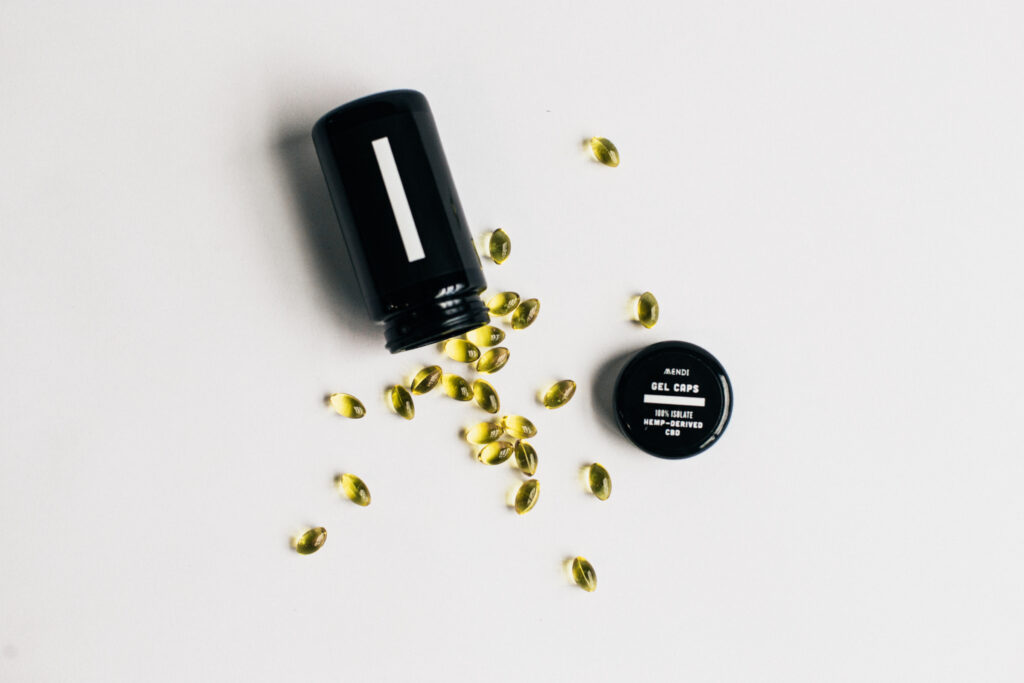
Rachael Rapinoe: I think number one, people need to stop marketing CBD as a magical elixir, because it’s not snake oil and it’s not going to cure all things.
I think that it’s really important to point to the science and to point to testimonials.
You’re not hearing people say it’s curing cancer, but by and large, you are hearing people say, “I feel more balanced. I’m getting great sleep. When I use this topical on my knee, I’m getting relief within one to two days.”
That’s what you’re hearing.
We wanted to keep the integrity of the plant alive by telling an honest story, and the honest story is that cannabis is a wonderful daily supplement and analgesic. But it’s subtle; it’s not just going to cure everything.
It’s part of the reason why a lot of people are leery of hemp, CBD specifically, because they expect it to cure all of their aches and pains.
That’s just not necessarily the case, but it can do wonders in conjunction with other healthy daily regimen.
Number two, being transparent.
If we say that something has 500 milligrams of CBD in it, we actually mean that it has 500 milligrams of CBD in it.
I think there’s been way too many incidences of falsely marketed dosages and ingredients, and that needs to stop.
Part of that’s because the FDA doesn’t have any rules and regulations. It’s kind of been like the wild, wild west.
We’re really excited for some regulations to be implemented because I think it will wean out some of the bad eggs.
C&T Today: You have two different product lines, Base and Core, one that has less than 0.3-percent THC and one that has no THC. Why is this distinction important?
Rachael Rapinoe: For us, it was important because we came to market with athletes that are under the world anti-doping agency and [International Olympic Committee] policies.
So any Olympic athlete under those policies can only take CBD.
Technically, THC is illegal and every other cannabinoid in the hemp plant is illegal … Even though the full spectrum has very minimal traces of THC, for people who can’t have anything in their system, they are just fearful of taking something that even has minimal traces.
So, we came to market with a CBD-only line, that way, athletes know they can use it and they don’t have to worry about getting tested.
Also for the beginning users, this is a great entry point for them.
But for anyone who doesn’t have to worry about testing policies, we absolutely recommend full spectrum.
C&T Today: How do you see the relationship between CBD and THC and professional sports changing? Will we see a time when these leagues allow even that 0.3-percent of THC?

Rachael Rapinoe: Oh, 100-percent. I mean, the MLB has dropped their entire cannabis ban, so athletes that play in the MLB can use full THC, full cannabis, everything, and they don’t get tested for it.
The NFL has not necessarily dropped their ban, but they’re not testing for it, so in a roundabout way, they’re saying you can use it, but they just don’t want to come outwardly and say cannabis is legal.
NHL has very loose policies around cannabis.
The NWSL obviously doesn’t test for cannabis. MLS has now dropped their CBD van.
Obviously the PLL, they have no cannabis policies at all. So, absolutely it’s being destigmatized.
We’ve gotten a call from every major sports league in the country asking for sponsorship in 2021.
Now not all of them have CBD categories right now, but there will be CBD categories in almost every major sports league come 2021.
C&T Today: Have there been any lessons that you learned on the soccer field that you’ve been able to apply to your entrepreneurial endeavors?
Rachael Rapinoe: Definitely. I think the number one thing is, as an athlete, you learn how to fail.
That’s so important. You can’t go into business being afraid to fail because you are going to fail. You’re going to make mistakes.
You know, there’s so many things that I would’ve done differently this year. You can’t dwell on it.
You have to ultimately stay true to your mission and your vision and be comfortable failing and be comfortable being nimble and flexible because you just never know what’s going to happen.
I could’ve never imagined 2020 panning out this way. And if I was inflexible and super fearful and failing, I’d be paralyzed by now, you know?
C&T Today: Looking at the athletes you work with and your executive team, was it important for you to champion female leadership and diversity into Mendi?
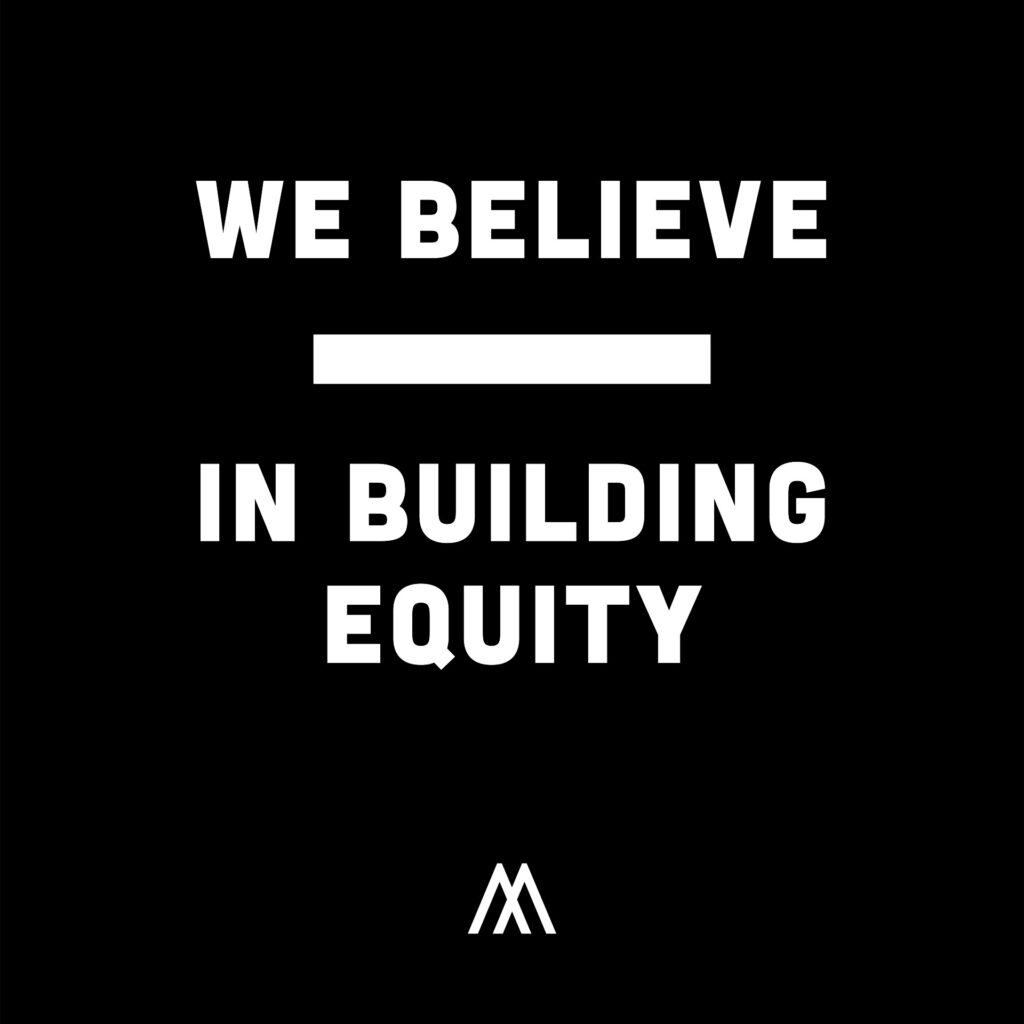
Rachael Rapinoe: Definitely. We were a company from the beginning that was always going to champion equity and equality first over anything.
And the cannabis industry and the history of oppression and [the industry] being built on the backs of black and brown people; that all goes hand in hand.
Absolutely this industry needs to be much more inclusive. We need to keep the integrity of it intact.
You know, I’m a female, I’m gay, my sister’s gay, we came to market during the women’s World Cup and hedged our bets on women’s soccer and women’s basketball.
I’ve been wanting to show that you can invest in women. This is a formula that works.
You can absolutely come to market as a new company with high-profile, female athletes.
Invest in them first and they can help you build a successful brand.
Unfortunately there isn’t equal investment in male and female athletes and male and female sports.
I think a lot of more established mature companies are worried that they’re not going to get there at the ROI, but you absolutely can if you’re doing it the right way.
C&T Today: Looking towards the future – five, 10, even 20 years down the road – what would you say your goals for Mendi are?
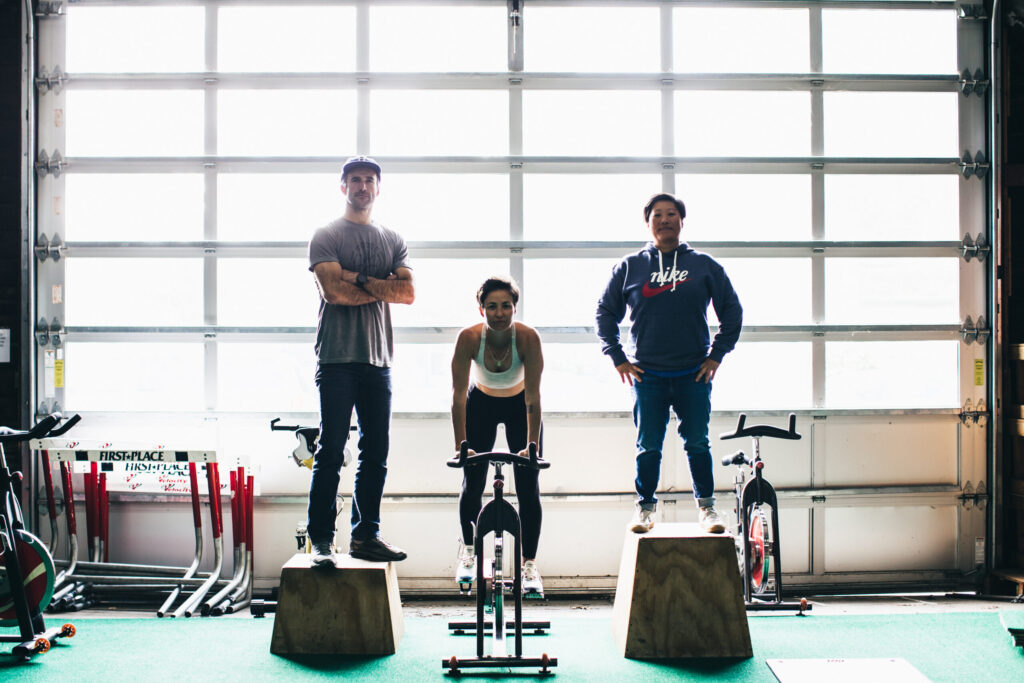
Rachael Rapinoe: I think it’s twofold. For Mendi, we want to be the most trusted sports cannabis brand.
We also want to be a brand that does things the right way and that champions equity and equality and really puts our money where our mouth is and proves that you can build a business that does that, and it’s going to be just as successful as the next business.
We want to be leaders in the industry. We want to have a strong foothold and keep the standards high and push other brands to make decisions that benefit everyone as a whole.
I would say those are our biggest goals.
It’s going to take a little bit of time, but we’re up for the challenge.

